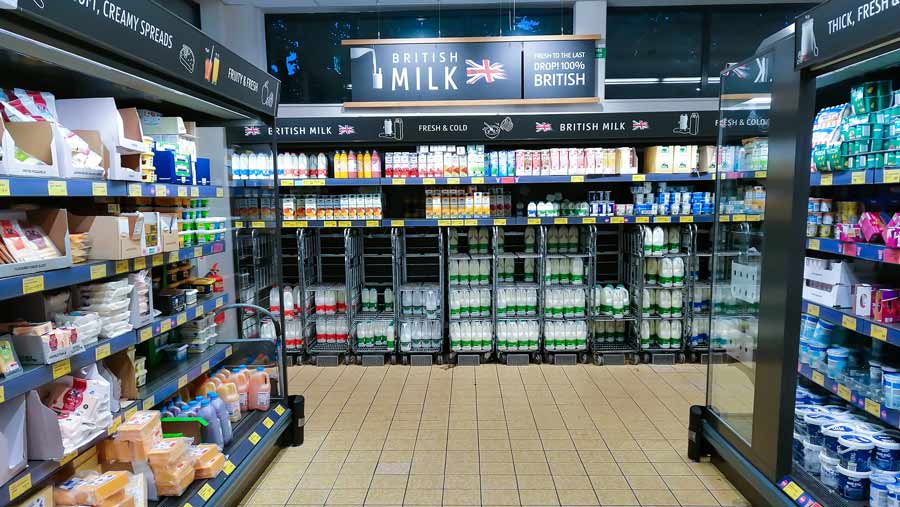Grocery inflation hits 12%, shoppers turn to value lines
 © Ascannio/Adobe Stock
© Ascannio/Adobe Stock Grocery price inflation hit 12.4% in August, a new record according to retail analyst Kantar.
This makes the average annual grocery bill £571 more expensive than it was a year ago.
Evidence of the financial pressure on consumers came with sales of the cheapest value own label products rising by one-third compared with a year ago.
Aldi moves into fourth place
Aldi’s share of the market rose 1.2%, to make it Britain’s fourth-largest supermarket for the first time, overtaking Morrisons.
See also: Rising costs strain farmer and retailer relations on pricing
Take-home grocery sales (as opposed to online ordering) increased by 3.8% in the 12 weeks to 4 September 2022, according to the latest figures from Kantar.
This is the third month in a row that the sector’s sales have grown after more than a year in decline as a consequence of comparisons with the pandemic.
The rise comes as grocery price inflation hit 12.4% during the past month, a new record based on Kantar’s data.
Fraser McKevitt, head of retail and consumer insight at Kantar, said: “It seems there’s no end in sight to grocery inflation as the rate at which food and drink prices are increasing continues to accelerate.
“The latest figure means that the average annual grocery bill will go from £4,610 to £5,181 if consumers don’t make changes to what they buy and how they shop to cut costs.
“Categories such as milk, butter and dog food are jumping up especially quickly, at 31%, 25% and 29% respectively.”
Own-label products accounted for more than half of sales, at 51.1% and rising by £393m in the four weeks to 4 September.
“In what is a fiercely competitive sector, supermarkets are reacting to make sure they’re seen to acknowledge the challenges consumers are facing and offer best value, in particular by expanding their own-label ranges,” said Mr McKevitt.
These latest figures show that shoppers are already managing their budgets, partly through broadening the range of stores they visit.
Aldi’s sales rose by 18.7% over the 12 weeks to 4 September 2022, giving it a 9.3% market share, while Lidl’s sales grew by 20.9%, taking its market share to 7.1%.
For the fourth month in a row Lidl was the fastest growing grocer, seeing its strongest sales performance since October 2014.
Top retailer market shares – 12 weeks to 4 September 2022
- Tesco 26.9%
- Sainsbury’s 14.6%
- Asda 14.1%
- Aldi 9%
- Morrisons 9.1%
- Lidl 7.1%
- Co-op 6.5%
- Waitrose 4.7%
- Iceland 2.4%
- Ocado 1.7%
